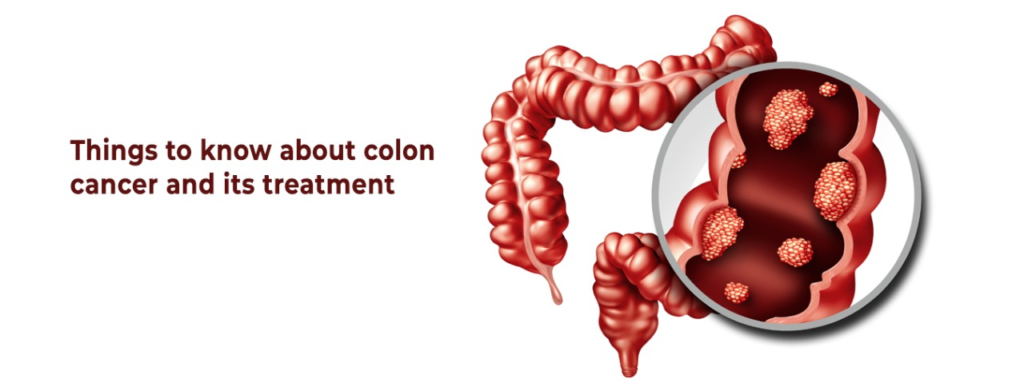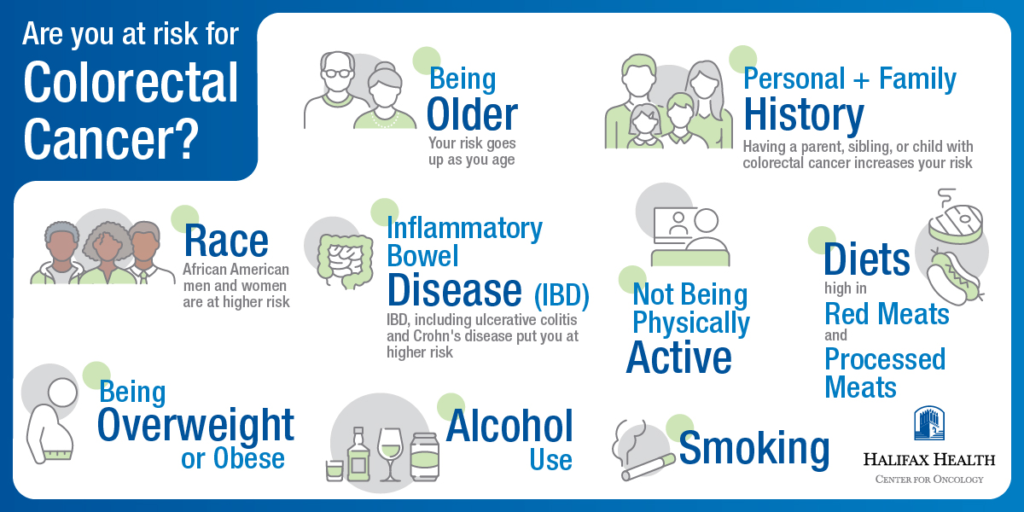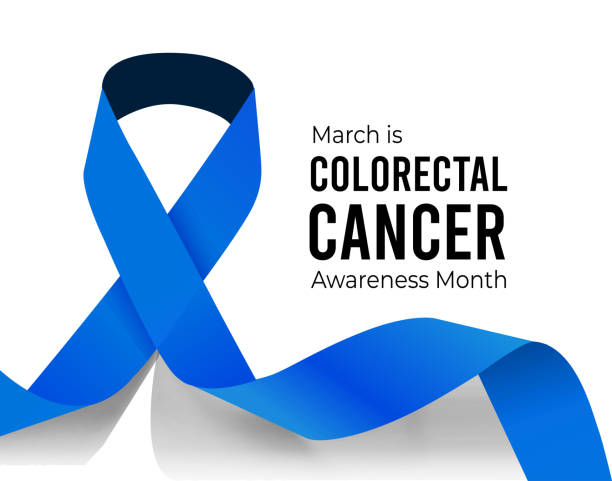Risk Factor & Treatments of Colorectal Cancer

Colorectal cancer or colon cancer is now the third most common cancer in both men and women in Asia. Colon cancer develops from certain polyps or growths in the inner lining of your colon.
The risk factors include certain medical conditions, genetics and lifestyle choices. Having one or more risk factors for colon cancer doesn’t mean one will develop the condition. It just means one has an increased risk.
On this week’s posting, we share the risk factors that may help you decide if you should talk to a healthcare provider about your risk of developing colon (colorectal) cancer and also the optional treatments out there.

Lifestyle choices that are risk factors for colon cancer:
•Smoking
•Excessive alcohol use
•Obesity
•A diet that includes lots of red meat and processed meat: Healthcare providers recommend to limit red meat and processed meat to 2 servings a week.
•Sedentary lifestyle
Medical conditions that increase colon cancer risk:
•Medical conditions such as inflammatory bowel disease & ulcerative colitis
•A family history of colon and other kinds of cancer: If a close family member has colon cancer, you may have an increased risk of developing the condition.
•A family history of polyps: If your parent, sibling or child has an advanced polyp, you may have an increased risk of getting colon cancer.
How do healthcare providers treat colon cancer?
Surgery is the most common colon cancer treatment. There are many different colon cancer procedures which are helpful as well:

•Polypectomy: This surgery removes cancerous polyps.

•Surgical resection: This is also called colon resection surgery. Surgeons remove the section of your colon that contains a tumour and some surrounding healthy tissue.

•Radiofrequency ablation: This procedure uses heat to destroy cancer cells.

•Chemotherapy: Healthcare providers may use chemotherapy drugs to shrink tumours and ease colon cancer symptoms.

•Targeted therapy: This treatment uses antibodies to target the genes, proteins and tissues that help colon cancer cells grow and multiply.
Screening for colorectal cancer saves lives and should begin at the age of 45 for people who have one or more risk factors as above.
References:
1. UC Davis Health. Under 50? Don’t ignore Colorectal Cancer Awareness Month.
2. Centres for Disease Control and Prevention. Colorectal Cancer Awareness.







